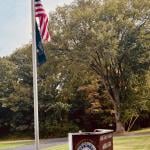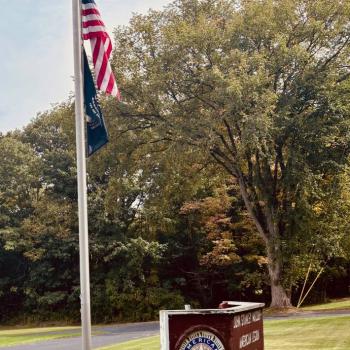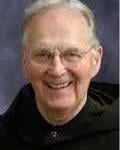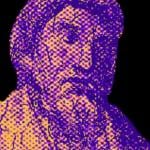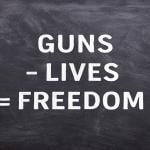Voicing The Truth in a Truthless Era
Reflections on Moral Courage and Identity Amid Civil Unrest
Opening
I always wondered what I would do during civil unrest like we have seen frequently in the United States and the Globe over the last 125 years. I spent my formative years in college studying the likes of Mahatmas Ghandi, Martin Luther King, Thich Nhat Hahn and Jesus. Eventually I would stumble into John Wesley, and he taught me a few things as well. In this post this week, I want to address the moral quandary and identity crisis we as American Christians find ourselves in. I want to reflect on how these visionaries responded to the challenges they experienced from their traditional perspectives.
The Moral Quandary Facing American Christians
I was in my first weeks of Seminary when 9/11 happened. I found this single event to be a peculiar turning point for our country in a way that I feel that my grandparents would not have recognized when the Japanese attacked Pearl Harbor.
Unlike earlier moments of national crisis, the aftermath of 9/11 ushered in an era marked by intensified tribalism and a narrowing of identity. The suddenness of the attacks—a jarring rupture in everyday life—created a vacuum into which fear, and suspicion quickly flowed. Political and cultural leaders, seeking solidarity, often invoked explicitly Christian language in the public square, framing the conflict in terms that blended patriotism with religious fervor. For many, the American flag and the cross became nearly inseparable symbols of belonging and purpose. None of this language however was remotely Apostolic Christian or represented the faith of Jesus. It was empire building and nurtured the seeds of what has become the MAGA cult today.
Instead of joining in solidarity and building back stronger, fingers were pointed, especially those coded as religiously or ethnically “other,” and there emerged a swelling of white Christian Nationalism: a movement that equated Americanness with whiteness and Christianity, casting dissent and diversity as threats to the social order. We have now become so racist as a nation and so racist is our message that to speak out for the other and caring for the poor and marginalized is seen as unpatriotic and un-Christian.
The events of 9/11 thus did not merely wound the national psyche; they set the stage for a redefinition of American Christian identity—one in which truth became malleable and moral courage meant defending borders rather than welcoming the stranger. This legacy persists, challenging faith communities to rediscover authenticity and to confront the historical patterns that shape our responses to civil unrest.
In the aftermath of these events, our society has struggled with truth and authenticity in its faith communities. Some would claim now that we live in a post truth era. The statistics now demonstrate the increase in the rise of the nones, in part because of the hypocrisy demonstrated by the very institutions that were to bring us the “truth”.
Historical Responses to Civil Unrest
The individuals I raised in the beginning of this post were not saints, they had their moral failings, but they do demonstrate for us how we must live.
Mahatma Gandhi, facing the British Empire’s systematic denial of Indian dignity, pioneered nonviolent resistance—a tool that he created from his spiritual conviction and absolute commitment to truth. He saw justice as inseparable from compassion and challenged colonial power by refusing to return hatred for hate, instead inviting adversaries into the possibility of transformation.
Martin Luther King Jr., stood before a nation divided by segregation and racial terror. Applying Ghandi’s nonviolent techniques, he inspired hundreds to not yield to the easy seduction of bitterness or vengeance but instead summoned the moral imagination of America with his insistence that “injustice anywhere is a threat to justice everywhere.”
Calling out from the pulpit and in the public square, King named the violence inflicted upon Black bodies and called forth a beloved community anchored in the ethics of love and reconciliation. King exposed the hypocrisy of American democracy and offered a powerful vision for its redemption.
Thich Nhat Hahn, in the midst of his war-torn Vietnam, turned to the practices of mindfulness and engaged Buddhism. He bore witness to suffering not with resignation but with gentle, persistent activism, organizing relief efforts and peace marches, inviting both sides of the conflict into dialogue. By teaching that “peace is every step,” Thich Nhat Hahn exposed the moral chasms of war and offered a spiritual path that refused to dehumanize the enemy, insisting that true reconciliation begins with the transformation of one’s own heart.
Jesus Christ, in Roman-occupied Judea, refused the logic of empire and religious legalism. He spoke truth by eating with outcasts, healing the wounded, and declaring the blessedness of the poor, the meek, and the merciful. His parables and actions undermined the social hierarchies of his day, calling out the self-righteousness of the powerful and inviting all into a radical kingdom marked by mercy, justice, and love. In the face of violence and betrayal, Jesus embodied forgiveness, even unto death, exposing the violence at the heart of worldly power while affirming the divine image in every person.
John Wesley, navigating the tumult of 18th-century England, challenged the spiritual lethargy and social injustices of his time. He preached not only the necessity of personal holiness but also the urgent call to care for the poor, the sick, and the imprisoned. Weley challenges us that faith without works is dead. We cannot proclaim the cross if we are not willing to carry the cross.
Echoing my words from the opening, I have always wondered what I would do in times like these. Learning from these visionaries, the direction is clear. We must respond to civil unrest not by retreating into safe abstractions but by naming and challenging the prevailing injustices. We must disturb the uncomfortable and inform future generations that the courageous articulation of truth is the first step toward genuine societal renewal.
Conclusion
The truest experience in the bible is that God is love. We are too prideful, and self-entitled today. We have been educated by bad theology that being Christian is a get out jail free card. We have also co-opted the sin of pride and made it our standard bearer. The early Acts II church which I have patterned much of my ministry work was marked by small house churches who gathered to care for their community. While not present at the time of the Acts II church, they embodied the notion of Tikkum Olam which refers to various forms of action intended to repair and improve the world.
We sing that they will know we are Christian by our love. Jesus calls us to love less, think of ourselves less, our patriarchal systems, or familial cultures less and focus more on God and God’s presence in all we experience. This means seeing the whole picture, all of God’s creation. God loves the white skinned baby in America just as much as the brown skinned baby dying in a hospital in Palestine. We too must stop seeing a difference. There is no us vs. Them, there is only us.



